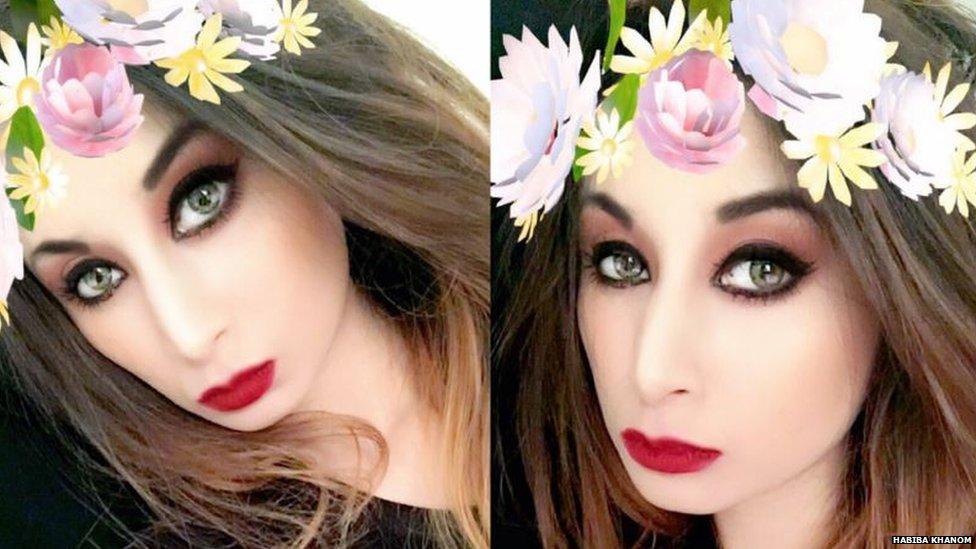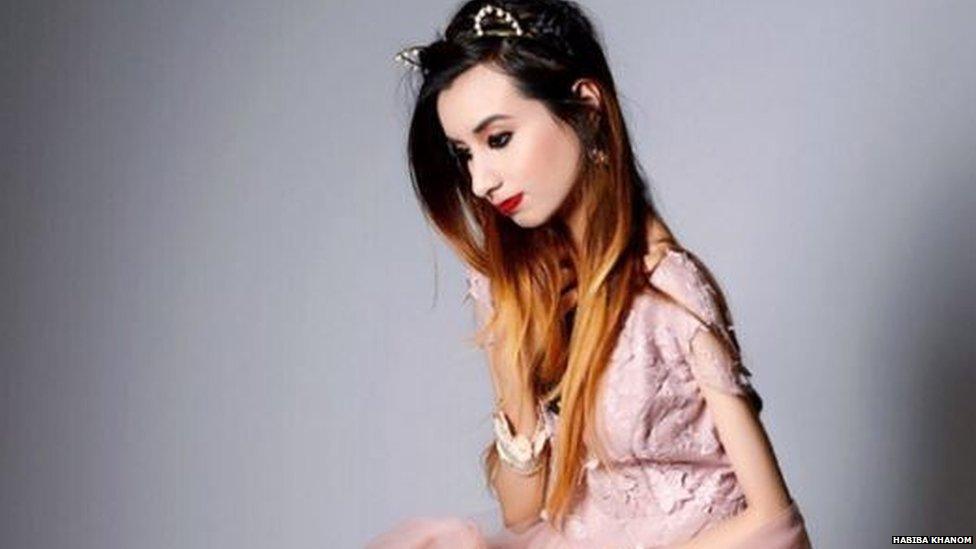Anorexia stops me fasting for Ramadan
- Published

Ramadan begins today, a time when Muslims fast during the hours of daylight for a month.
The spiritual fasts can present a number of challenges, not least if you suffer from an eating disorder.
Newsbeat has been speaking to Habiba Khanom, 24, who is one of the few Muslims to speak out about eating disorders in her community.
She was diagnosed with anorexia in her early teens.

Ramadan is the hardest time of year for the BBC journalist from London.
"Every year when Ramadan comes around, I am faced with a tough decision" she says.
"Actually, it isn't even my own decision. It is the medical professionals' decision, on whether I can start fasting or not."
In an ideal world, Habiba admits she would love to fast - but says it would be in a "twisted way" because she'd be focusing on the weight loss as opposed to the religious significance of it.
"This year, I personally don't feel ready and again, I am still medically advised not to fast."
For the past decade she's been seeing a dietician and a psychologist as a means of coping.
"For the past couple of months, I have been doing ok in recovery. I have been working so hard to fight the thoughts and not starve myself. It's really tough."

"Iftar [the meal eaten to break the fast after sunset] preparations fill the whole day and everyone talks about what they are going to eat for Iftar.
"It can really mess with your mind if you have an eating disorder," says Habiba.
Habiba admits that at this time of year, she can feel jealous of others taking part in Ramadan and that means she becomes more isolated from friends and family.
Having binged in the past, she says the feasting can tempt her into a bad cycle again.
Habiba uses social media as an outlet to talk about her anorexia and says although she's not met any Muslims in "real life" that talk about the challenges of Ramadan, on Twitter she has met some.
Here is a tweet where she says she's scared of food and calories. , external
In this tweet she says she doesn't want to eat. , external
Here is a tweet from Habiba putting up eating disorder awareness posters. , external
As a student, Habiba was at her lowest weight. Now she's much better, but confesses she sometimes goes for a day without food, just fuelling herself on coffee.
"It's an illness, not a choice."
Habiba would like to see more advice in mosques for people like her, but she has this advice: "If you are struggling with an eating disorder during the month Ramadan, I would suggest talking to someone and let them know how you are feeling."
"Don't fast if your intention is to satisfy your eating disorder by losing weight."
The charity Beat says people have reported difficulties to them during Ramadan and other religious occasions.
The charity told Newsbeat: "There can be dangerous complications of fasting, both in terms of the immediate physical effects and the impact it may have psychologically for someone who has anxious or otherwise difficult thoughts around food.
"Recovery also often involves establishing a regular pattern for meals, so disruption to this may be a setback for some people.
"We would strongly encourage anyone suffering from an eating disorder who is planning on fasting for Ramadan to speak to their doctor, who will be able to assess their individual needs."
BBC Advice has help and information if you or someone you know is affected by these issues.
Find us on Instagram at BBCNewsbeat, external and follow us on Snapchat, search for bbc_newsbeat